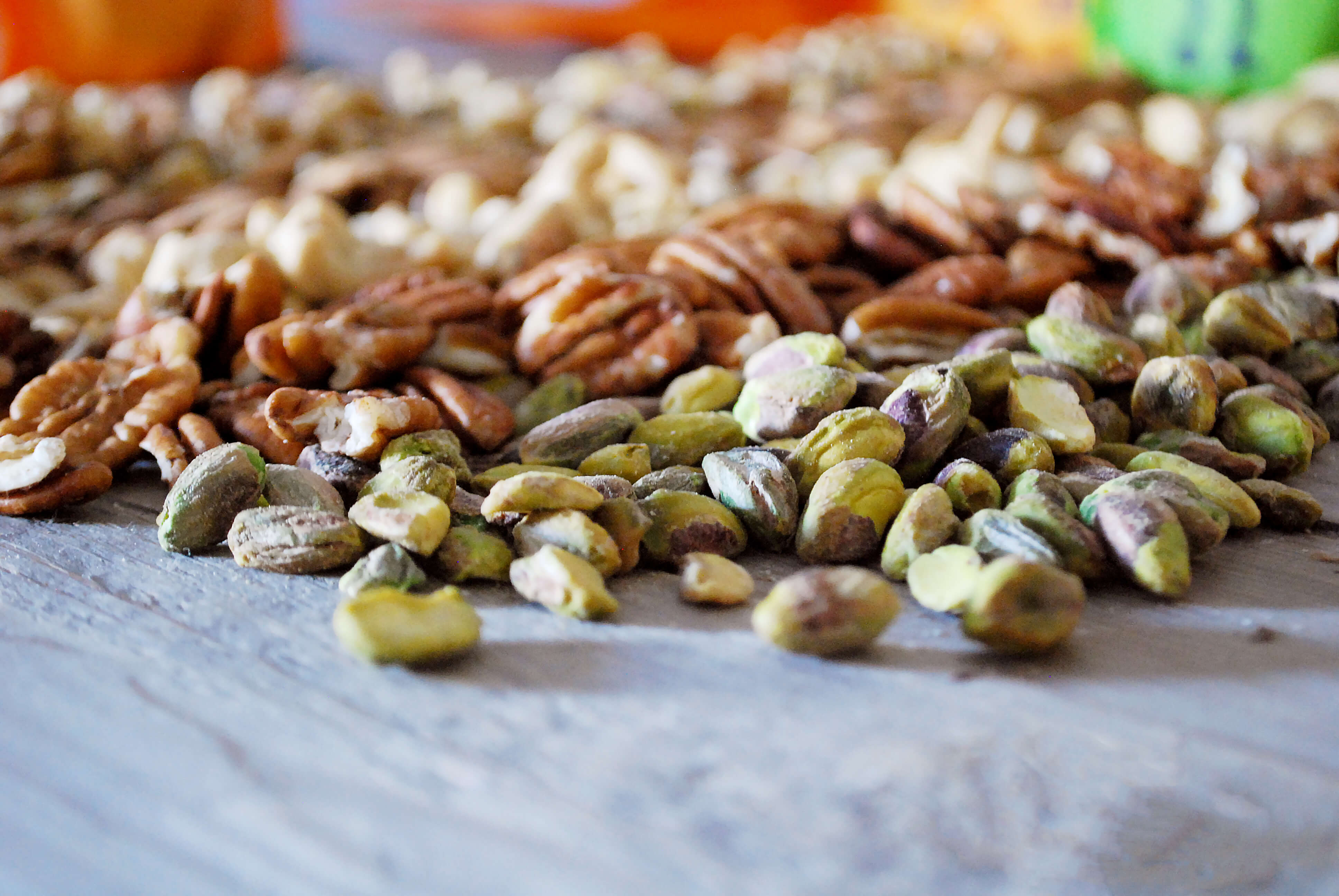7 Common Food Myths Debunked
It seems that a new fad diet plan pops up every few weeks, touting the latest foods to trim fat or boost lean muscle. However, the specific diet you follow is not as important as learning some nutrition basics. Given the large amount of misinformation or misconceptions about food that circulate, debunking common food myths can help you make healthier choices.
1. Saturated Fats are Always Bad for You

In the 1960s, doctors began to promote low-fat diets as nutritionally superior and associated with better health (La Berge, 2008). Then, in the 1990s and 2000s, the “all fats are bad” conventional wisdom shifted, with scientists recognizing that polyunsaturated and monounsaturated fats -- the so-called “healthy fats” -- are actually associated with greater heart health. Another shift has occurred more recently.
Although saturated fats have always been firmly in the “bad” camp, new research shows that not all saturated fats are created equal. In particular, a diet high in stearic acid appears to lower levels of unhealthy LDL cholesterol, increase healthy HDL cholesterol, and decrease overall plasma cholesterol (Bonanome et al., 1988). Coconut oil and cocoa butter are both dietary sources of stearic acid.
2. Organic Foods Contain More Nutrients Than Their Conventional Counterparts
There are a lot of misconceptions surrounding the organic label you see on foods at the supermarket. The term “organic” is regulated by the U.S. Department of Agriculture. Legally, foods labeled “organic” must be grown without synthetic fertilizers, pesticides, antibiotics, or growth hormones (U.S. Department of Agriculture, 2016). Organic farmers also often follow production practices that are less harmful to the environment and to animal welfare.
However, many people believe that organic products are inherently more nutritious or healthier than their conventional alternatives. Large scale studies of this topic has shown that it is not true (Dangour et al., 2009). There is no difference in the amount or quality of the nutrients found in conventional foods versus their organic counterparts.
3. Skipping Breakfast is a Good Way to Cut Calories and Lose Weight Faster

Creating a deficit between the number of calories you consume and the number of calories your body burns is the only way to lose weight. With this in mind, some people rationalize that skipping a meal -- usually breakfast -- is a good way to cut excess calories. Although breakfast does deliver calories to your body, it also boosts your metabolism, and eating a meal in the morning is associated with weight loss success (Wyatt et al., 2002).
4. Fresh Foods Are Always Better than Frozen or Dried Alternatives
While many nutrition experts will tell you that eating plenty of fruits and vegetables is a healthy choice, this does not mean you need to stick to fresh, straight-from-the-garden produce. When foods are flash frozen shortly after harvesting, they typically contain the same nutrient profile as their fresh alternatives (Vorvick, 2015).
The convenience and cost of frozen or canned foods makes them attractive options, particularly when fresh foods are out of season in your area. Just make sure you carefully read nutrition labels before purchasing frozen or canned foods. Some of these foods have high levels of added sodium or preservatives, which can make them less healthy options.
5. Foods that Are Labeled “Natural” Are Better for You
“Natural” is a word that evokes pleasant feelings, implying that a food is inherently good for you. However, “natural” and “all-natural” are not regulated in the same way that “organic” or “kosher” are. So-called “natural” foods could contain large amounts of high fructose corn syrup, foods treated with pesticides, or genetically engineered products. In response to consumer concerns about this issue, the Food and Drug Administration recently asked for public comments on the use of the word “natural” in food labeling (Food and Drug Administration, 2016). This signals that the FDA may take action to regulate use of this term to prevent consumers from being misled.
Until the label “natural” is better regulated, reading nutritional labels carefully is the best way to ensure the foods you eat are healthy. Never assume that an “all-natural” food has any particular nutritional benefit or superior qualities.
6. Eating Eggs Raises Your Cholesterol Levels
It’s true that eggs contain a moderate amount of cholesterol. A typical chicken egg contains an estimated 186 mg of cholesterol, all of which is contained in the yolk (Mayo Clinic, 2014). However, eating foods high in dietary cholesterol does not necessarily raise your blood cholesterol levels. Consuming high amounts of trans fats or unhealthy saturated fats is more predictive of high cholesterol levels and cardiovascular disease (Mayo Clinic, 2014). If you do enjoy eggs, prepare them with minimal oil or added fat and eat them in moderation.
7. Nuts are an Unhealthy Junk Food

Nuts have gotten a bad rap in certain nutrition circles. While it is true that nuts are relatively energy dense, meaning that they contain a relatively high number of calories per unit weight (Mayo Clinic, 2014), nuts are actually an important part of a healthy diet. They contain high amounts of protein and monounsaturated fats that are good for heart health. For instance, almonds contain 6 grams of protein and 14 grams of healthy fat per ounce (MacMillan, 2014). Eating raw or dry roasted nuts tends to be healthier than eating nuts packaged in oil, which can contain more unhealthy fat. Enjoy nuts on salads, blended into smoothies, or nut butters smeared on toast to get the most benefit.
Healthy Eating
- Healthy Snacks
- Healthy Meals
- Healthy Recipes
- Sports Nutrition
- Nutrition and Special Diets
- 21 Day Fix
- 5 Popular Diet Similarities
- Alkaline Diet
- Anti-Inflammatory Diet
- Calorie Counting
- Carb Cycling Diet
- Celiac Disease
- Cholesterol
- Clean Eating
- Crohn's Disease
- DASH Diet
- Detox Diet
- Diabetes
- Diabetes Diet
- Diet Pill Dangers
- Fat Burning Foods
- Gluten-free Diet
- Glycemic Index
- Heart Health
- High Blood Pressure Diet
- High Fiber Foods
- How to Eat Healthy
- How to Lower Blood Pressure
- Hypertension
- IBS Diet
- Ketogenic Diet
- Liquid Diet
- Low GI Foods
- Low-Carb Diet and Foods
- Low-Fat High-Carb Diet
- Mediterranean Diet
- Mediterranean Diet Foods
- Military Diet
- Nutrition Labels Explained
- Paleo Diet
- Raw Food Diet
- Superfoods
- Sustainable Weight Loss
- Thrive Diet
- Vegan Diet
- Vegetarian Diet
- Weight Loss Shakes
- Whole30
- Vitamins, Minerals & Nutrients
